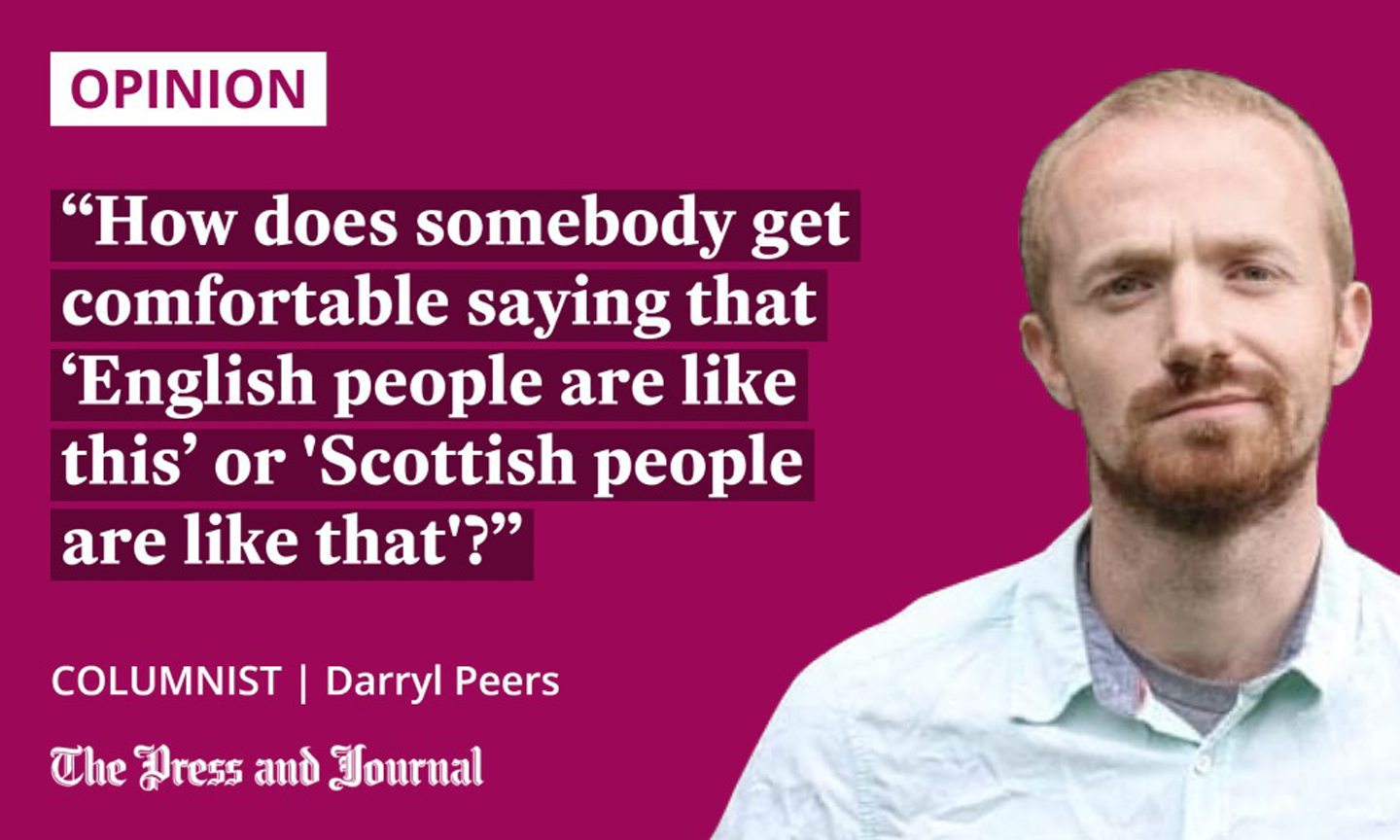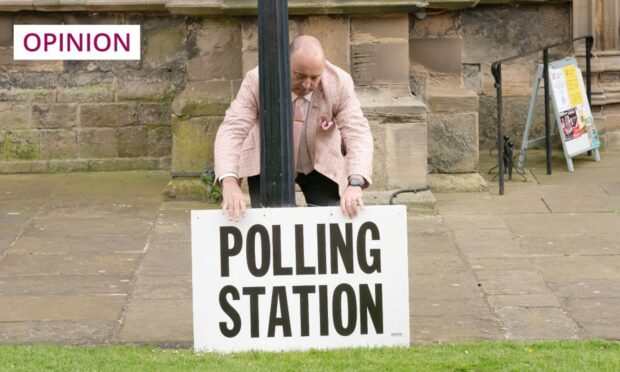Since last week’s local council elections in England, several national broadcasters have attempted to predict what implications the results might have for next year’s general election.
This has included projections of what may happen in areas where there wasn’t a vote this time. One such area is Scotland.
Since last Thursday, Scotland has been the subject of political commentary imagining how Labour might gain seats in the country, or whether a minority Labour government would work with the SNP.
Growing up, I would find myself skipping over news stories about English voting, knowing instinctively that they didn’t affect me. However, when covering local elections, some analysts speak as if the results affect the whole UK. Of course, some do have knock-on effects in other areas, but the nuances of how that works are lost when different regions are conflated.
In these cases and others, a speaker says “the UK”, but they really mean “England”.
It is difficult for UK-wide broadcasters to deliver relevant content for audiences in every part of the country. However, rather than that difficulty being acknowledged, sometimes the audience presumed to be largest is the one presenters, journalists and their guests imagine themselves to address.

For a Scottish viewer of, for instance, BBC News, this creates an odd experience. If you listen to the surface meaning of the words on your TV or radio, it sounds as if you are being referred to when a journalist asks a politician about something being experienced by “people all over the country”. However, sometimes the question the journalist is asking clearly does not relate to Scottish people.
On the one hand, you seem to be addressed. On the other, you are not.
There are some in Scotland, particularly among those who advocate for independence, who might argue that there is something essentially Scottish about this experience. It demonstrates, to these people, that English people view Scots as inferior at worst, or barely consider them at best.
But this is a reactionary point. Who would I be to make some generalising statement about what it is to be Scottish? I could say that all Scottish people can relate to the experience of ostensibly being addressed by a London-based journalist who is, in fact, hardly aware that they exist. It would feel nice to air the grievance, but I would be reinforcing the problem.
English local election coverage is an interesting case study
There are no doubt many Scottish people who feel differently. Some will say that I’m talking nonsense. A Scottish nationalism which depends on uniting a definition of Scottishness under one easy banner will reproduce the inequities stemming from a UK where Scottish concerns are not understood by London-centric decision-makers.
English local election coverage is a case study in how information is distributed through the UK according to power dynamics which empower the south of England and disempower “regions” such as Scotland. Scottish nationalists frequently suggest that a remedy to that imbalance is to cut ourselves off from England and shift power closer to home.
This kind of argument relies on the assumption that particular characteristics are typical of English and Scottish people. But there is nothing inherently arrogant or neglectful about English organisations which is demonstrated through their failure to address Scottish audiences. And there is no conclusion to be drawn about Scottish people in light of that experience.
Instead, I might ask what it is that leads people to imagine they can speak for others. How does somebody get comfortable saying that “English people are like this” or “Scottish people are like that”?
How does someone attain the level of confidence – or, perhaps, ignorance – that leads them to say their experience of local election news will be echoed by others simply because they’re from the same place?
A nationality does not make a person
All over the world, and in manifold ways, people organise themselves into groups and attach significance to what it means to be from that group. To say that you are like other people with whom you share a birthplace can feel like a way of bringing yourself closer to them. But it is also to distance yourself from people born in other places.
People – no matter where they’re from – might always be different than we expect. Two people might live their lives in the same place and yet be nothing alike. Two people who think they have nothing in common will find they chime with one another when they start to talk.
A nationality, or any other aspect of identity, does not make a person. People are more than words can capture.
I hope that if we say “why’s the ‘national’ news always just for English people?”, we’ll bear in mind that someone else, someone Scottish, might feel differently.
Darryl Peers is a writer from the north-east of Scotland


Conversation